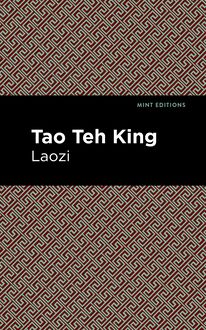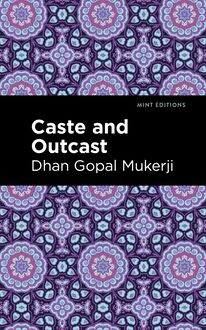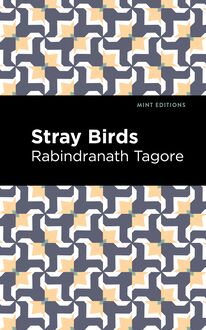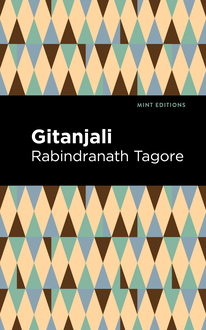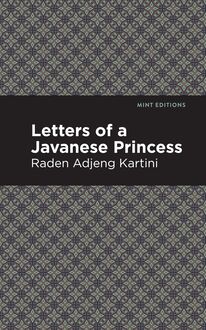-
 Univers
Univers
-
 Ebooks
Ebooks
-
 Livres audio
Livres audio
-
 Presse
Presse
-
 Podcasts
Podcasts
-
 BD
BD
-
 Documents
Documents
-
- Cours
- Révisions
- Ressources pédagogiques
- Sciences de l’éducation
- Manuels scolaires
- Langues
- Travaux de classe
- Annales de BEP
- Etudes supérieures
- Maternelle et primaire
- Fiches de lecture
- Orientation scolaire
- Méthodologie
- Corrigés de devoir
- Annales d’examens et concours
- Annales du bac
- Annales du brevet
- Rapports de stage
La lecture à portée de main
Vous pourrez modifier la taille du texte de cet ouvrage
Découvre YouScribe en t'inscrivant gratuitement
Je m'inscrisDécouvre YouScribe en t'inscrivant gratuitement
Je m'inscrisEn savoir plus
Vous pourrez modifier la taille du texte de cet ouvrage
En savoir plus

Description
Folk Tales of Bengal: Life’s Secret (1883) is a collection of stories by Lal Behari Dey. Inspired by the stories told to him by village elders in his boyhood, Lal Behari Dey wrote Folk Tales of Bengal: Life’s Secret in order to portray the lives and traditions of Bengali peasants in a positive, human light. Praised by Charles Darwin for his novel Govinda Samanta: Or the History of a Bengal Raiyat, Lal Behari Dey was awarded a substantial prize for his literary achievements by a prominent Bengali zamindar, cementing his reputation as a pioneering figure in Bengali literature. “I have reason to believe that the stories given in this book are a genuine sample of the old old stories told by old Bengali women from age to age through a hundred generations.” With this certificate of authenticity, Lal Behari Dey presents the stories of his youth in Bengal, stories of kings and queens, gods and monsters, of rich and poor and everything in between. In “Life’s Secret,” he tells the tale of Suo, a beautiful queen who has been unable to give birth to a son for her impatient, powerful husband. Just as she is ready to give in to despair, a mysterious healer presents her with a magical drug that will grant her the fertility she seeks. In “Phakir Chand,” two young friends on a journey to a foreign land encounter a princess held captive by a terrifying serpent. Saving her, they agree to remain at her palace, but only one of them can take her hand in marriage. Charming, instructive, and often surprising, Folk Tales of Bengal: Life’s Secret is an underappreciated masterpiece of Bengali literature from Lal Behari Dey. With a beautifully designed cover and professionally typeset manuscript, this edition of Lal Behari Dey’s Folk Tales of Bengal: Life’s Secret is a classic work of Bengali literature reimagined for modern readers.
Sujets
Informations
| Publié par | Mint Editions |
| Date de parution | 08 juin 2021 |
| Nombre de lectures | 1 |
| EAN13 | 9781513288369 |
| Langue | English |
| Poids de l'ouvrage | 1 Mo |
Informations légales : prix de location à la page 0,0500€. Cette information est donnée uniquement à titre indicatif conformément à la législation en vigueur.
Extrait
Folk-Tales of Bengal
Life’s Secret
Lal Behari Dey
Folk-Tales of Bengal: Life’s Secret was first published in 1912.
This edition published by Mint Editions 2021.
ISBN 9781513283340 | E-ISBN 9781513288369
Published by Mint Editions®
minteditionbooks .com
Publishing Director: Jennifer Newens
Design & Production: Rachel Lopez Metzger
Project Manager: Micaela Clark
Typesetting: Westchester Publishing Services
C ONTENTS P REFACE I. L IFE’S S ECRET II. P HAKIR C HAND III. T HE I NDIGENT B RAHMAN IV. T HE S TORY OF THE R AKSHASAS V. T HE S TORY OF S WET- B ASANTA VI. T HE E VIL E YE OF S ANI VII. T HE B OY WHOM S EVEN M OTHERS SUCKLED VIII. T HE S TORY OF P RINCE S OBUR IX. T HE O RIGIN OF O PIUM X. S TRIKE BUT H EAR XI. T HE A DVENTURES OF T WO T HIEVES AND OF THEIR S ONS XII. T HE G HOST- B RAHMAN XIII. T HE M AN WHO WISHED TO BE P ERFECT XIV. A G HOSTLY W IFE XV. T HE S TORY OF A B RAHMADAITYA XVI. T HE S TORY OF A H IRAMAN XVII. T HE O RIGIN OF R UBIES XVIII. T HE M ATCH-MAKING J ACKAL XIX. T HE B OY WITH THE M OON ON HIS F OREHEAD XX. T HE G HOST WHO WAS A FRAID OF BEING B AGGED XXI. T HE F IELD OF B ONES XXII. T HE B ALD W IFE
P REFACE
In my Peasant Life in Bengal I make the peasant boy Govinda spend some hours every evening in listening to stories told by an old woman, who was called Sambhu’s mother, and who was the best story-teller in the village. On reading that passage, Captain R. C. Temple, of the Bengal Staff Corps, son of the distinguished Indian administrator Sir Richard Temple, wrote to me to say how interesting it would be to get a collection of those unwritten stories which old women in India recite to little children in the evenings, and to ask whether I could not make such a collection. As I was no stranger to the M ä hrchen of the Brothers Grimm, to the Norse Tales so admirably told by Dasent, to Arnason’s Icelandic Stories translated by Powell, to the Highland Stories done into English by Campbell, and to the fairy stories collected by other writers, and as I believed that the collection suggested would be a contribution, however slight, to that daily increasing literature of folk-lore and comparative mythology which, like comparative philosophy, proves that the swarthy and half-naked peasant on the banks of the Ganges is a cousin, albeit of the hundredth remove, to the fair-skinned and well-dressed Englishman on the banks of the Thames, I readily caught up the idea and cast about for materials. But where was an old story-telling woman to be got? I had myself, when a little boy, heard hundreds—it would be no exaggeration to say thousands—of fairy tales from that same old woman, Sambhu’s mother—for she was no fictitious person; she actually lived in the flesh and bore that name; but I had nearly forgotten those stories, at any rate they had all got confused in my head, the tail of one story being joined to the head of another, and the head of a third to the tail of a fourth. How I wished that poor Sambhu’s mother had been alive! But she had gone long, long ago, to that bourne from which no traveller returns, and her son Sambhu, too, had followed her thither. After a great deal of search I found my Gammer Grethel—though not half so old as the Frau Viehm ä nnin of Hesse-Cassel—in the person of a Bengali Christian woman, who, when a little girl and living in her heathen home, had heard many stories from her old grandmother. She was a good story-teller, but her stock was not large; and after I had heard ten from her I had to look about for fresh sources. An old Brahman told me two stories; an old barber, three; an old servant of mine told me two; and the rest I heard from another old Brahman. None of my authorities knew English; they all told the stories in Bengali, and I translated them into English when I came home. I heard many more stories than those contained in the following pages; but I rejected a great many, as they appeared to me to contain spurious additions to the original stories which I had heard when a boy. I have reason to believe that the stories given in this book are a genuine sample of the old old stories told by old Bengali women from age to age through a hundred generations.
Sambhu’s mother used always to end every one of her stories—and every orthodox Bengali story-teller does the same—with repeating the following formula:—
Thus my story endeth,
The Natiya-thorn withereth.
“Why, O Natiya-thorn, dost wither?”
“Why does thy cow on me browse?”
“Why, O cow, dost thou browse?”
“Why does thy neat-herd not tend me?”
“Why, O neat-herd, dost not tend the cow?”
“Why does thy daughter-in-law not give me rice?”
“Why, O daughter-in-law, dost not give rice?”
“Why does my child cry?”
“Why, O child, dost thou cry?”
“Why does the ant bite me?”
“Why, O ant, dost thou bite?”
Koot! koot! koot!
What these lines mean, why they are repeated at the end of every story, and what the connection is of the several parts to one another, I do not know. Perhaps the whole is a string of nonsense purposely put together to amuse little children.
Lal Behari Day
Hooghly College,
February 27, 1883
I
L IFE ’ S S ECRET
There was a king who had two queens, Duo and Suo. Both of them were childless. One day a Faquir (mendicant) came to the palace-gate to ask for alms. The Suo queen went to the door with a handful of rice. The mendicant asked whether she had any children. On being answered in the negative, the holy mendicant refused to take alms, as the hands of a woman unblessed with child are regarded as ceremonially unclean. He offered her a drug for removing her barrenness, and she expressing her willingness to receive it, he gave it to her with the following directions:—“Take this nostrum, swallow it with the juice of the pomegranate flower; if you do this, you will have a son in due time. The son will be exceedingly handsome, and his complexion will be of the colour of the pomegranate flower; and you shall call him Dalim Kumar. As enemies will try to take away the life of your son, I may as well tell you that the life of the boy will be bound up in the life of a big boal fish which is in your tank, in front of the palace. In the heart of the fish is a small box of wood, in the box is a necklace of gold, that necklace is the life of your son. Farewell.”
In the course of a month or so it was whispered in the palace that the Suo queen had hopes of an heir. Great was the joy of the king. Visions of an heir to the throne, and of a never-ending succession of powerful monarchs perpetuating his dynasty to the latest generations, floated before his mind, and made him glad as he had never been in his life. The usual ceremonies performed on such occasions were celebrated with great pomp; and the subjects made loud demonstrations of their joy at the anticipation of so auspicious an event as the birth of a prince. In the fulness of time the Suo queen gave birth to a son of uncommon beauty. When the king the first time saw the face of the infant, his heart leaped with joy. The ceremony of the child’s first rice was celebrated with extraordinary pomp, and the whole kingdom was filled with gladness.
In course of time Dalim Kumar grew up a fine boy. Of all sports he was most addicted to playing with pigeons. This brought him into frequent contact with his stepmother, the Duo queen, into whose apartments Dalim’s pigeons had a trick of always flying. The first time the pigeons flew into her rooms, she readily gave them up to the owner; but the second time she gave them up with some reluctance. The fact is that the Duo queen, perceiving that Dalim’s pigeons had this happy knack of flying into her apartments, wished to take advantage of it for the furtherance of her own selfish views. She naturally hated the child, as the king, since his birth, neglected her more than ever, and idolised the fortunate mother of Dalim. She had heard, it is not known how, that the holy mendicant that had given the famous pill to the Suo queen had also told her of a secret connected with the child’s life. She had heard that the child’s life was bound up with something—she did not know with what. She determined to extort that secret from the boy. Accordingly, the next time the pigeons flew into her rooms, she refused to give them up, addressing the child thus:—“I won’t give the pigeons up unless you tell me one thing.”
D ALIM: What thing, mamma?
D UO: Nothing particular, my darling; I only want to know in what your life is.
D ALIM: What is that, mamma? Where can my life be except in me?
D UO: No, child; that is not what I mean. A holy mendicant told your mother that your life is bound up with something. I wish to know what that thing is.
D ALIM: I never heard of any such thing, mamma.
D UO: If you promise to inquire of your mother in what thing your life is, and if you tell me what your mother says, then I will let you have the pigeons, otherwise not.
D ALIM: Very well, I’ll inquire, and let you know. Now, please, give me my pigeons.
D UO: I’ll give them on one condition more. Promise to me that you will not tell your mother that I want the information.
D ALIM: I promise.
The Duo queen let go the pigeons, and Dalim, overjoyed to find again his beloved birds, forgot every syllable of the conversation he had had with his stepmother. The next day, however, the pigeons again flew into the Duo queen’s rooms. Dalim went to his stepmother, who asked him for the required information. The boy promised to ask his mother that very day, and begged hard for the release of the pigeons. The pigeons were at last delivered. After play, Dalim went to his mother and said—“Mamma, please tell me in what my life is contained.” “What do you mean, child?” asked the mother, astonished beyond measure at the child’s extraordinary question. “Yes, mamma,” rejoined the child, “I have heard that a holy mendicant told you that my life is contained in something. Tell me what that thing is.” “My p
-
 Univers
Univers
-
 Ebooks
Ebooks
-
 Livres audio
Livres audio
-
 Presse
Presse
-
 Podcasts
Podcasts
-
 BD
BD
-
 Documents
Documents
-
Jeunesse
-
Littérature
-
Ressources professionnelles
-
Santé et bien-être
-
Savoirs
-
Education
-
Loisirs et hobbies
-
Art, musique et cinéma
-
Actualité et débat de société
-
Jeunesse
-
Littérature
-
Ressources professionnelles
-
Santé et bien-être
-
Savoirs
-
Education
-
Loisirs et hobbies
-
Art, musique et cinéma
-
Actualité et débat de société
-
Actualités
-
Lifestyle
-
Presse jeunesse
-
Presse professionnelle
-
Pratique
-
Presse sportive
-
Presse internationale
-
Culture & Médias
-
Action et Aventures
-
Science-fiction et Fantasy
-
Société
-
Jeunesse
-
Littérature
-
Ressources professionnelles
-
Santé et bien-être
-
Savoirs
-
Education
-
Loisirs et hobbies
-
Art, musique et cinéma
-
Actualité et débat de société
- Cours
- Révisions
- Ressources pédagogiques
- Sciences de l’éducation
- Manuels scolaires
- Langues
- Travaux de classe
- Annales de BEP
- Etudes supérieures
- Maternelle et primaire
- Fiches de lecture
- Orientation scolaire
- Méthodologie
- Corrigés de devoir
- Annales d’examens et concours
- Annales du bac
- Annales du brevet
- Rapports de stage

